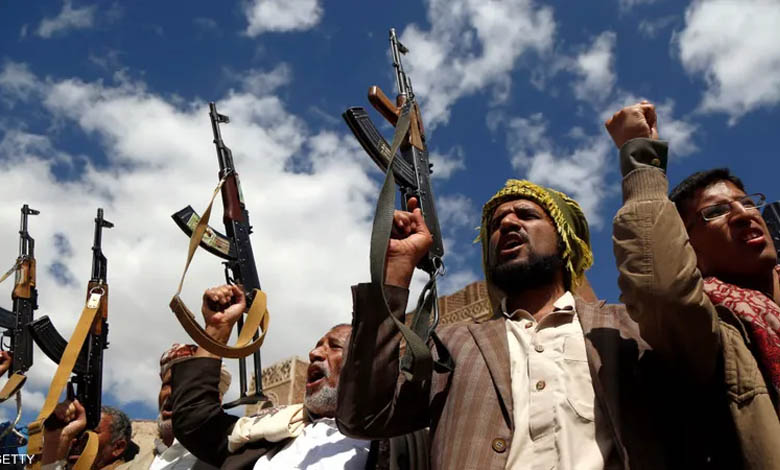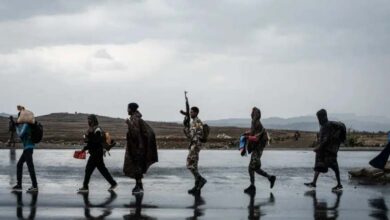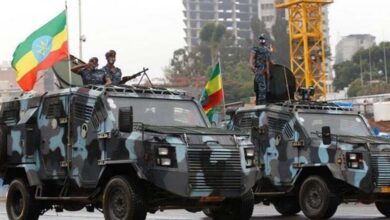By blocking Iran’s supplies, the American fleet is tightening the noose on the Houthis

The U.S. Navy’s Fifth Fleet in the Middle East offered lucrative rewards for information that could help seafarers intercept weapons, drugs, and other illicit shipments through the region, as the United States attempts to monitor movements between Iran and Houthi militias in Yemen to arm them, as well as Iran’s nuclear program.
Drugs and weapons
The Associated Press, the United States, said that while avoiding mentioning Iran directly, the Fifth Fleet’s decision to provide funds and other goods to the operational intelligence in the Arab Gulf and other strategic waterways may increase the pressure on the flow of weapons to the Houthis, as the cease-fire is still fragile in Yemen.
Indeed, it added, the Houthis threatened a new task force of the Fifth Fleet in the Red Sea, which the Fifth Fleet says it and its partners confiscated $500 million from drug trafficking activities alone in 2021, and the Fifth Fleet intercepted 9,00 weapons in the same period, tripling the number seized in 2020.
Timothy Hawkins, spokesman for the Fifth Fleet, said: “Any destabilizing activity is of interest to us. Last year we witnessed tremendous success in the seizure of both illicit drugs and illicit weapons, and this represents yet another step in our efforts to strengthen regional maritime security.” The new Fifth Fleet initiative was launched Tuesday through the Department of Defense’s Rewards Program, which saw cash and cargo rewards offered for guidance on battlefields in Afghanistan, Iraq and elsewhere after Al Qaeda launched the attacks of September 11, 2001. Since ground fighting largely ceased across the region, the Fifth Fleet has decided to try to use the program while patrolling the Middle East waterways.
Houthi terrorism
Hawkins said: Operators who are fluent in Arabic, English and Farsi will run a hotline, while the Navy will take additional advice online, adding that rewards can reach $100,000 or its equivalent in vehicles, boats or food to get advice that also includes information on planned attacks targeting Americans. The US agency confirmed that smugglers usually use stateless sailboats, traditional wooden sailboats common in the Middle East, to transport drugs and weapons. One of the destinations of the weapons appears to be Yemen, which increased after the Houthi terrorist group took over the Yemeni capital Sanaa in September 2014, and years of inconclusive fighting pushed the poorest country in the Arab world into famine.
The agency continued: “Despite the UN Security Council arms embargo on Yemen, Iran has long been transferring rifles, rocket-propelled grenades, rockets and other weapons to the Houthis, and although Iran denies arming the Houthis, independent experts, Western countries, and UN experts have traced components back to Iran”.












